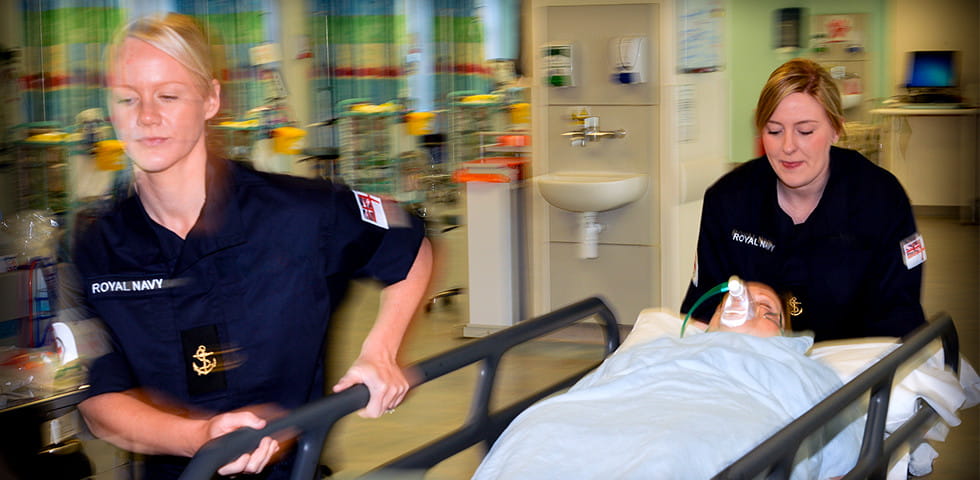Operating Department Practitioner (Student)
You’ll gain all the skills and qualifications you need for a career as an Operating Department Practitioner.
- £18,500 - £52,500
- A-Levels / college qualifications
- Surface Fleet
- Medical
- Rating level
£25,200
Earn at least this amount while studying at university
£33,000
Earn over this after university and initial training as you progress
Zero
Free
6 weeks
Travel

I got my diploma paid for by the Royal Navy, so I can start my career without a mountain of debt.
Role details
What you’ll do
Saving the lives of the people who risk theirs. That’s what you’ll be doing when you qualify as an ODP in the Royal Navy. As soon as you’ve finished your fully-funded ODP Diploma, you’ll become an essential part of the surgical team, tackling all aspects of the operating theatre and developing skills that will stay with you for life. And you’ll work all over the world in some of the most challenging environments imaginable too.
Your role
- Gain your qualifications and then use your expertise where it’s needed most – from treating trauma patients during a humanitarian crisis, to providing surgical treatment at an NHS hospital
- Provide crucial, lifesaving medical support in situations that can be demanding and sometimes dangerous
- Benefit from experience in a wide range of disciplines, including becoming qualified as a Sterile Services Manager and Surgical First Assistant
- Be part of a world-class medical service that’s respected far beyond the Armed Forces
Pay & benefits
- A salary of at least £18,500 after initial training
- Opportunity to earn over £31,000 as you progress
- An excellent pension scheme
- Six weeks of paid holiday every year
- Free medical and dental care
Skills for life
Qualifications you'll gain
- An Operating Department Practitioner Diploma
- Specialist vocational qualifications as your career progresses
Skills you'll develop
- How to provide support for surgical teams and save lives in challenging environments
- Gain training and skills in leadership and management throughout your career
Eligibility
- Aged 17 and a half to 39
- 112 UCAS points including Health and Social Care, Psychology, Social Science or Science subject at A-level or Level 3 equivalent
- GCSE English Language or Literature, GCSE Maths and GCSE Science at grade C/4 or above
- Evidence of academic study within the last 5 years
- 2 weeks of clinical experience
- Must be a British or Irish national, a Commonwealth citizen, or a Dual National. Dual Nationality restrictions apply
- A Body Mass Index (BMI) between 18 and 28 (between 17 and 27 if under 18)
Skills & Interests
- A technical thinker
- An aptitude for the clinical environment
- A team player
- An adventurous spirit
- Able to stay positive in the face of adversity
Joining Process
From picking your role to starting on your first day, these are the steps you'll take to join as a rating.
Submit an application
Defence Aptitude Assessment (DAA)
You’ll be tested on: Verbal Reasoning, Numerical Reasoning, Work Rate, Spatial Reasoning, Electrical Comprehension and Mechanical Comprehension.
To prepare, you can practise the DAA
Interview
Candidate Preparation Course (CPC)
Start training
Career Progression
Got a question?
Our virtual recruiter is available to answer your questions 24 hours a day
